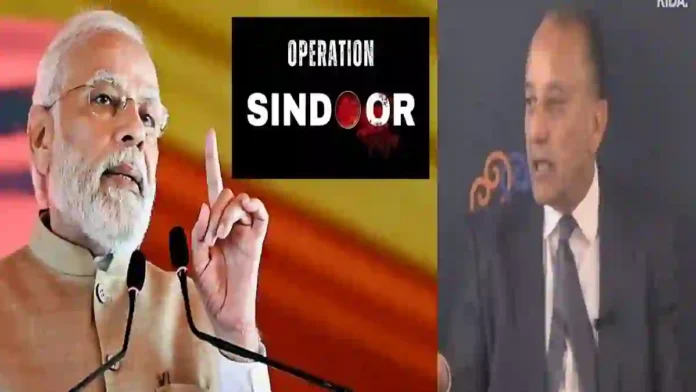In the aftermath of a significant escalation between India and Pakistan, a Pakistani delegation led by Federal Minister Musadik Malik has made a public plea in Washington for advanced American air defence systems and fighter jets.
This request comes on the heels of Indian airstrikes involving 80 aircraft and 400 missiles—some reportedly capable of carrying nuclear warheads—that targeted multiple sites within Pakistan, including the Rawalpindi airport and Nur Khan Airbase.
Malik, speaking in a widely circulated video, acknowledged the overwhelming technological superiority of the Indian assault and admitted that Pakistan’s current air defense systems were the only barrier preventing widespread devastation. “We would have been in rubbles if we had no air defence systems. The technology that India was deploying is far advanced. So, we say bring it on man, give those technologies to us, we will buy them from you,” Malik stated, highlighting the urgency of Pakistan’s request to the US.
Read- Russia Offers India Unprecedented Autonomy Over Su-57 Fighters With Full Source Code Transfer
This candid admission sharply contrasts with the narrative promoted by Prime Minister Shehbaz Sharif’s government within Pakistan. While Malik and his team sought military support abroad, Sharif’s administration continued to frame the conflict as a Pakistani triumph, claiming that India was forced into a ceasefire and that Pakistan had emerged victorious. To commemorate this supposed victory, Army Chief Syed Asim Munir was promoted to the rank of Field Marshal.
Sharif has publicly confirmed the Indian strikes, admitting that BrahMos missiles hit several locations deep inside Pakistan, including critical infrastructure in Rawalpindi. He described how India’s attacks pre-empted Pakistan’s planned retaliation, causing severe damage before Pakistani forces could respond.
The Pakistani delegation’s urgent appeal in Washington coincided with an Indian delegation, led by Congress MP Shashi Tharoor, presenting evidence of Pakistan’s terror infrastructure and briefing US officials on recent attacks, including ‘Operation Sindoor’ and the Pahalgam terror strike that killed 26 civilians in Jammu and Kashmir. The Indian team emphasized India’s commitment to counterterrorism and provided details of precision strikes that neutralized over 100 terrorists in Pakistan.
Amid mounting diplomatic pressure, Pakistan has also dispatched a separate team to Moscow, signalling an attempt to diversify its international support as scrutiny over its role in regional terrorism intensifies. These diplomatic efforts are part of a broader campaign to present Pakistan’s perspective on the conflict and advocate for dialogue and diplomacy over further confrontation.
Pakistan’s public appeal for advanced US weaponry in the wake of devastating Indian airstrikes has exposed a stark divide between its international pleas and domestic rhetoric. As both nations engage in parallel diplomatic offensives in Washington and beyond, the episode underscores the heightened volatility and the critical role of global powers in shaping the security dynamics of South Asia.
Agencies




